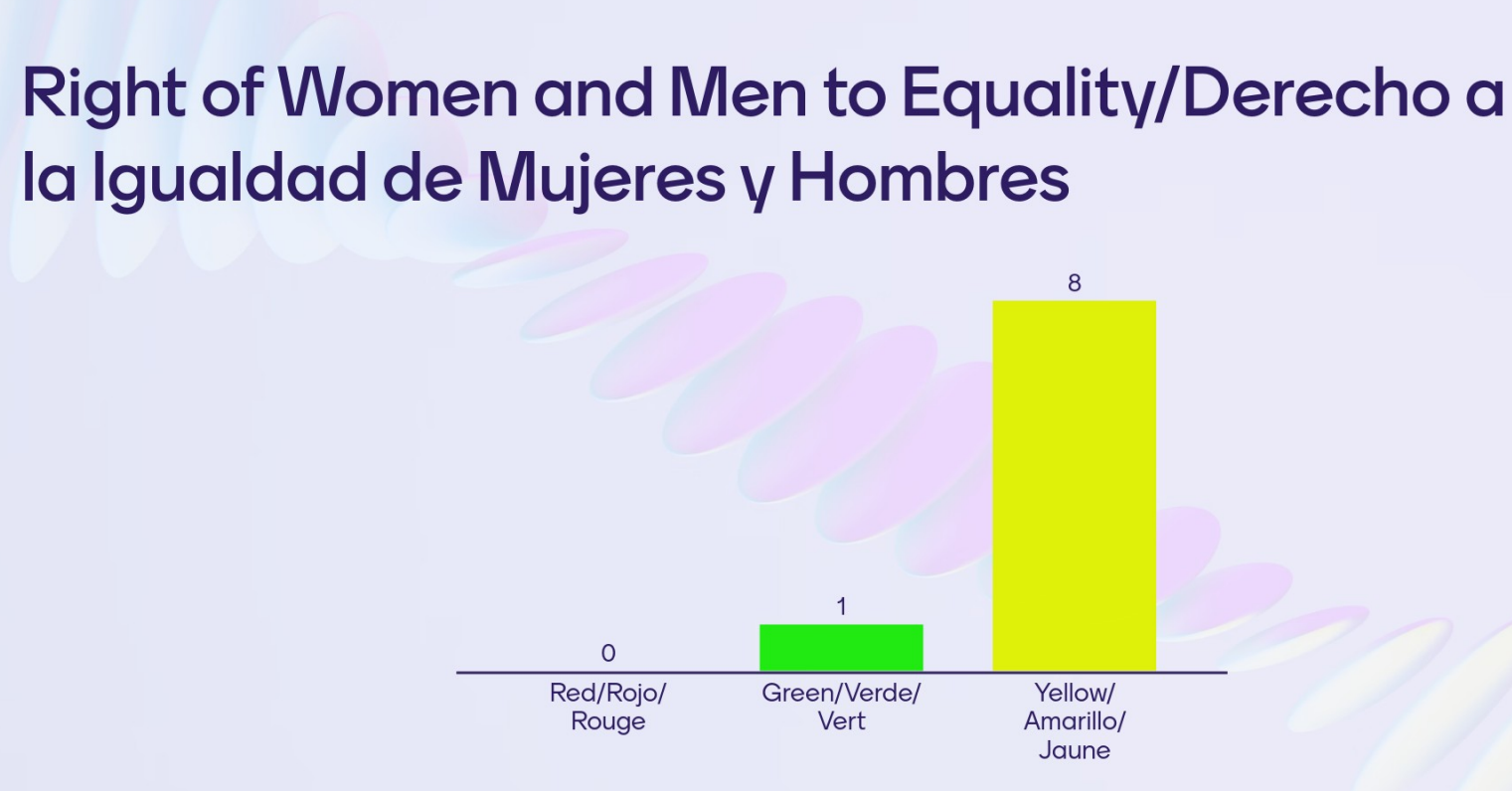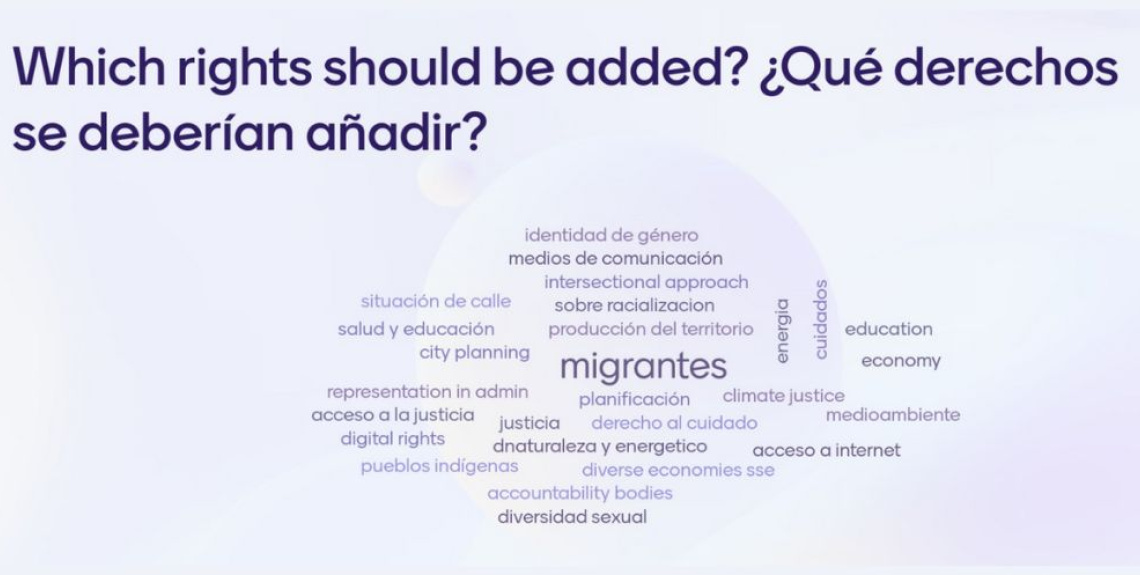On 18 May 2023, the Committee on Social Inclusion, Participatory Democracy and Human Rights of United Cities and Local Governments (UCLG-CSIPDHR) kicked off the first phase of the updating of the Charter-Agenda for Human Rights in the City. This first phase aims to renew the narrative and vision of this document by revising the structure of the 12 existing rights, with a view to better reflecting the action of local and regional authorities and identifying the rights that are not included in the current version.
The CSIPDHR and a steering board, consisting of expert partners and local and regional government officials who are co-presidents or active members of the CSIPDHR, are leading this initial phase. The following are members of the steering board: the cities of San Antonio and Valparaíso (Chile), Quilmes (Argentina), Iztapalapa (Mexico City), Vienna (Austria), Utrecht (Netherlands), Gwangju (Korea), Maui (Hawaii), Seine-Saint-Denis, Grigny (France). Also participating are the Human Rights Observatory of Chile, the Habitat International Coalition, the Global Platform for the Right to the City, the Raoul Wallenberg Institute, the European Union Agency for Fundamental Rights, the Human Rights Resource Centre and another HR expert of Barcelona (Spain), the General Directorate for Sexual Diversity and Human Rights of Mexico City (Mexico), an expert of the Association of Polish Cities, as well as a representative of the Asian Democracy Network and a former representative of the City of Montreal (Canada).
Learn more about the participatory process and methodology for updating the Charter-Agenda.
In the first meeting, the steering board assessed the current relevance of each article of the Charter-Agenda structure through a "traffic light" methodology in Mentimeter in which they selected between deleting (red), modifying (yellow) and keeping (green) each article. The results showed that the steering board does not consider it necessary to eliminate any of the rights currently present in the Charter-Agenda, but rather calls for reformulating seven of the 12 rights and leaving the remaining five as they are formulated.
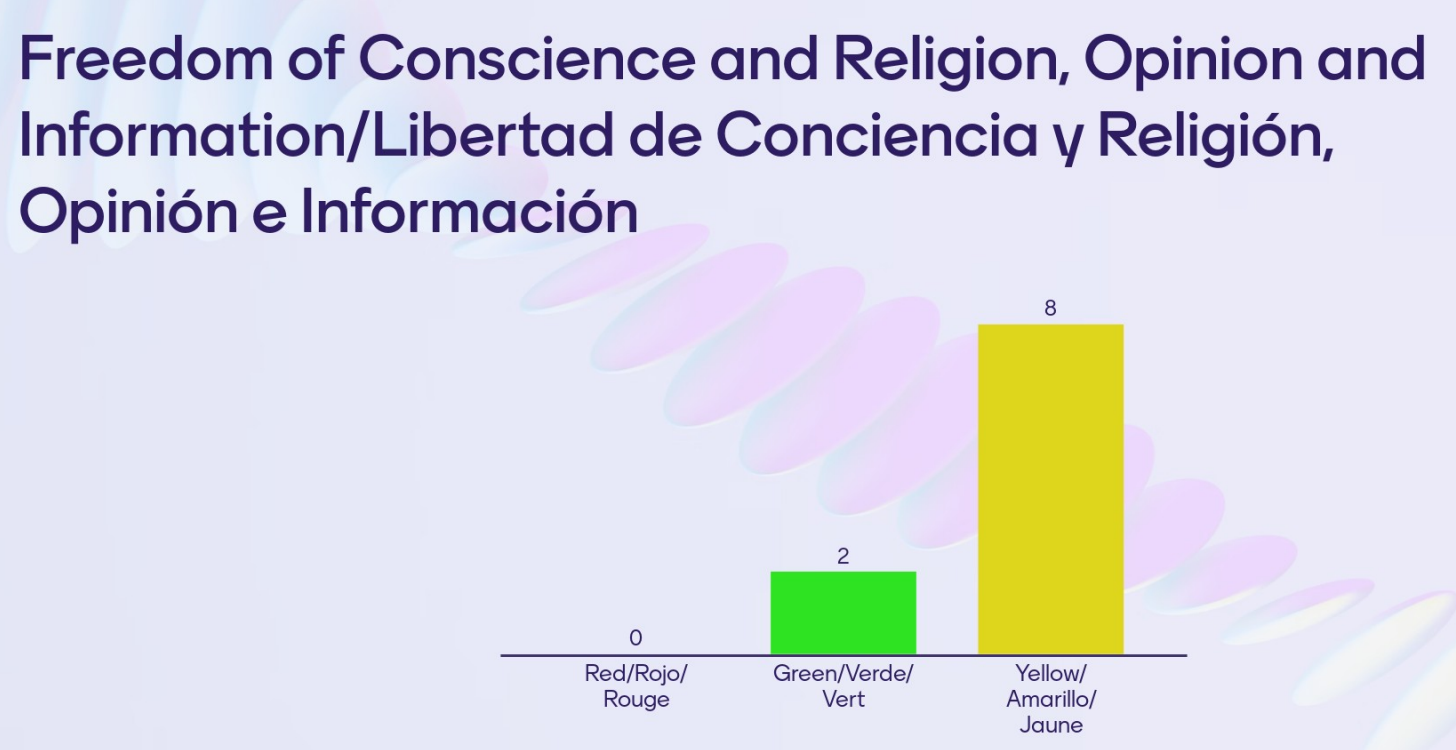
Among the main results of the first exercise is that the steering board considers it necessary to move away from a binary perspective to an approach that takes into account the diversity of genders in the "Right of women and men to equality". Another call is to expand the "Right to participatory democracy" towards citizen co-creation and new models for including all people in local action.
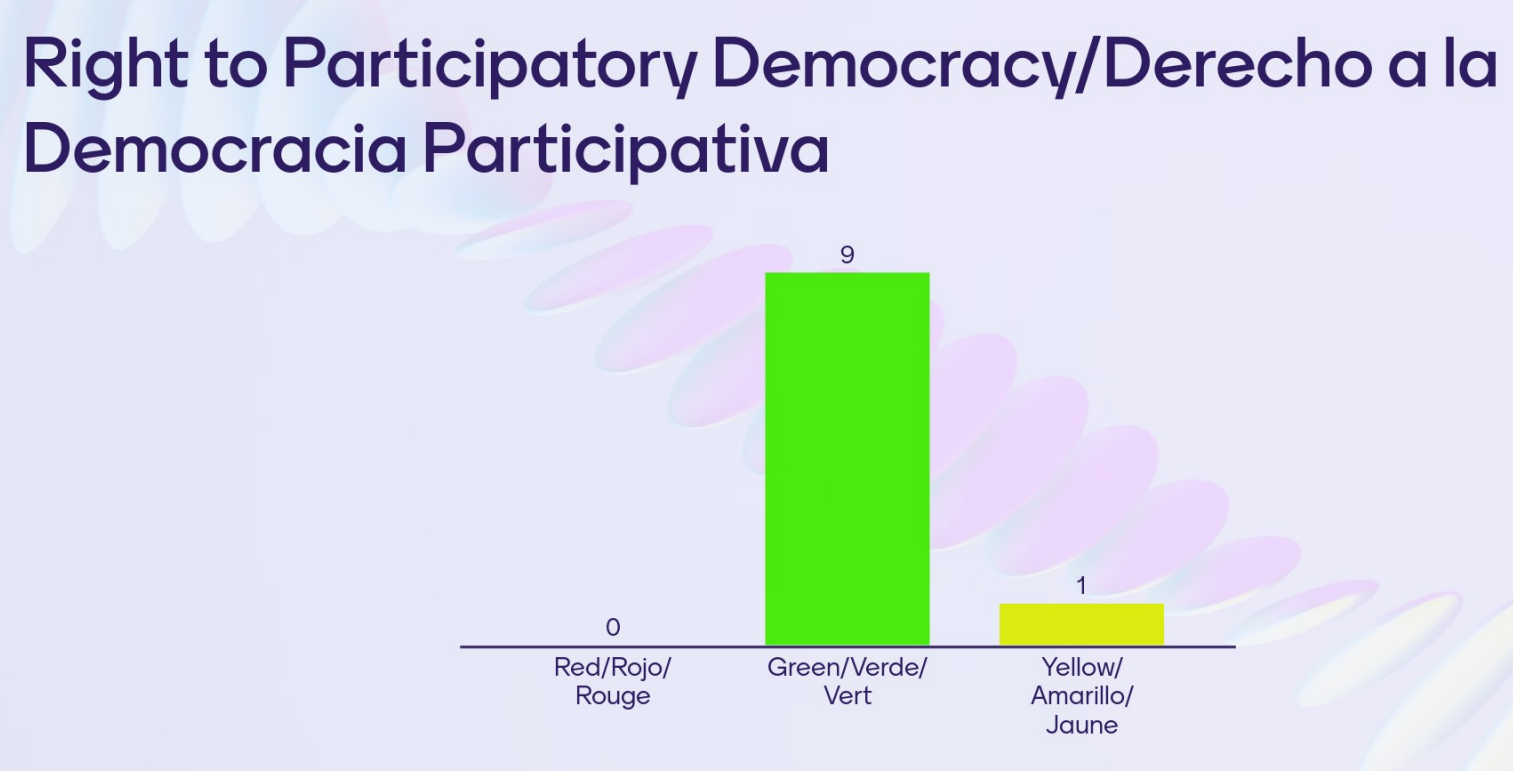
The steering board also emphasised the importance of focusing the Charter-Agenda on the scope of local government action, while deploying a global perspective to foster international collaboration and solidarity.
After this evaluation of the rights already included in the current version of the Charter-Agenda, the steering board was invited to reflect on "Which rights should be added?." Environmental rights, the right to justice, the right to work (with a special focus on informality), the right to mobility and transport, the right to non-discrimination, the right to impartial information, the right to energy and the right to health were proposed. Emphasis was also placed on introducing the following concepts and sub-rights in the new document: full city, commons, care, intersectionality, racial justice, economy, financing of cities, migrants and refugees, media and communication, memory and culture of peace, digital rights and human rights. In addition, the steering board stressed the need to expand the concept of accessibility to make the difference between inclusion and proximity.
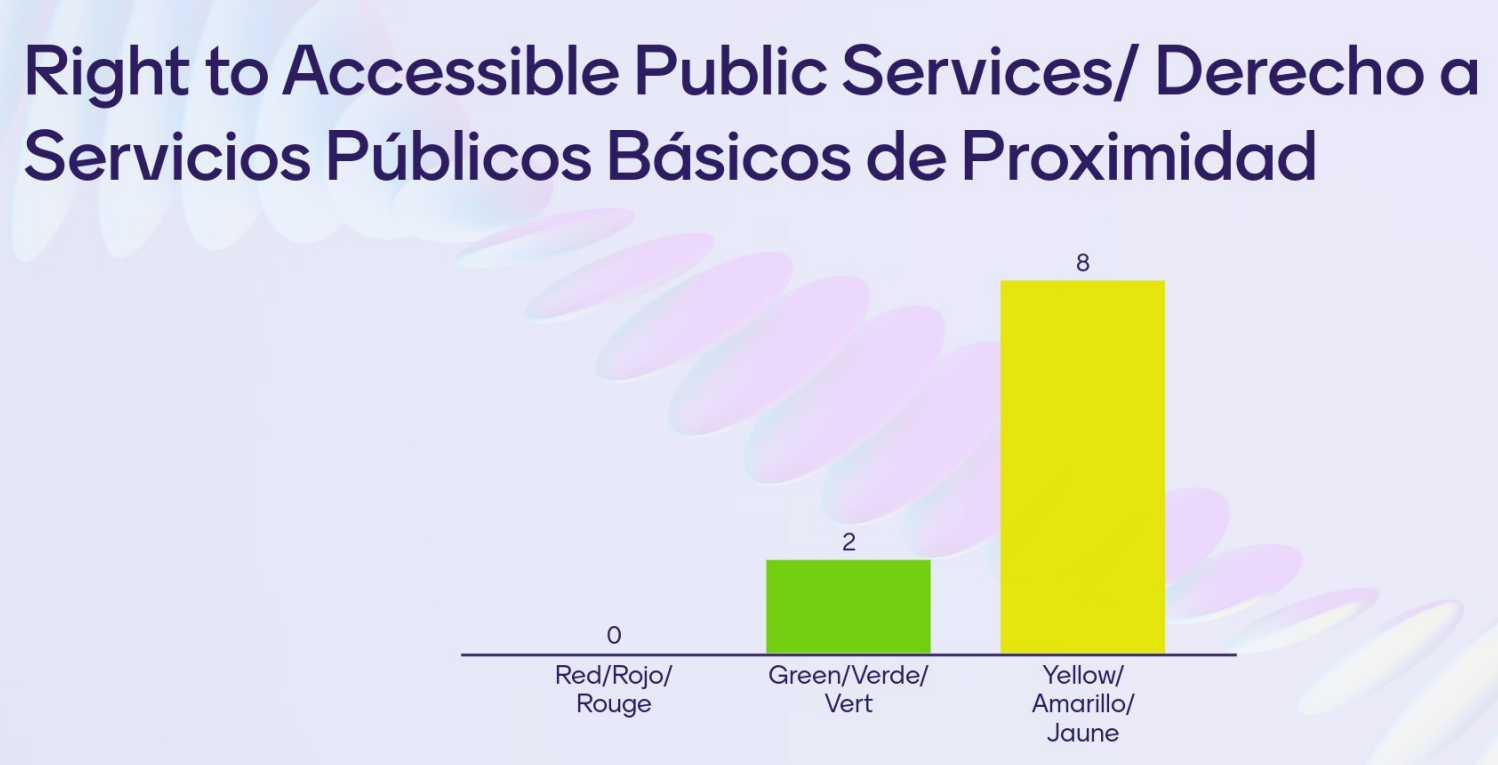
The second meeting of the steering board took place on 21 June 2023. At this meeting, a collective review was made of the revisions to the Charter-Agenda that each member of the steering board made individually through a form provided by CISDPDH. The steering board deems it necessary to introduce the notion of "Human Rights Cities," a need previously expressed by the participants of our Global Campaign "10, 100, 1000 Human Rights Cities and Territories by 2030" to bring to the forefront the role of Local and Regional Governments in the localisation and advancement of human rights. In this sense, the Charter-Agenda will also serve as an instrument of empowerment, but also of defining responsibilities.
Following this exchange of proposals, the next step is to develop a revised draft structure, to be presented on 12 September to the Political Representatives of Cities and Territories of the Campaign, at the invitation of Linda Voortman, Co-Mayor of Utrecht. If you would like more information about attending the meeting, please contact the CSIPDHR Secretariat: [email protected]
This first phase will also have a special session at the upcoming 13th World Forum of Human Rights Cities in Gwangju, to be held from 4 to 7 October 2023 in Gwangju, Korea. The session is entitled "Human Rights in the City: Workshop to update the UCLG Global Charter-Agenda" and will have a workshop format with working groups and a plenary feedback session. The exchanges will continue along the lines of reviewing the content of the rights, identifying specific concepts and ideas that should be reflected in the formulation and content of each right.
